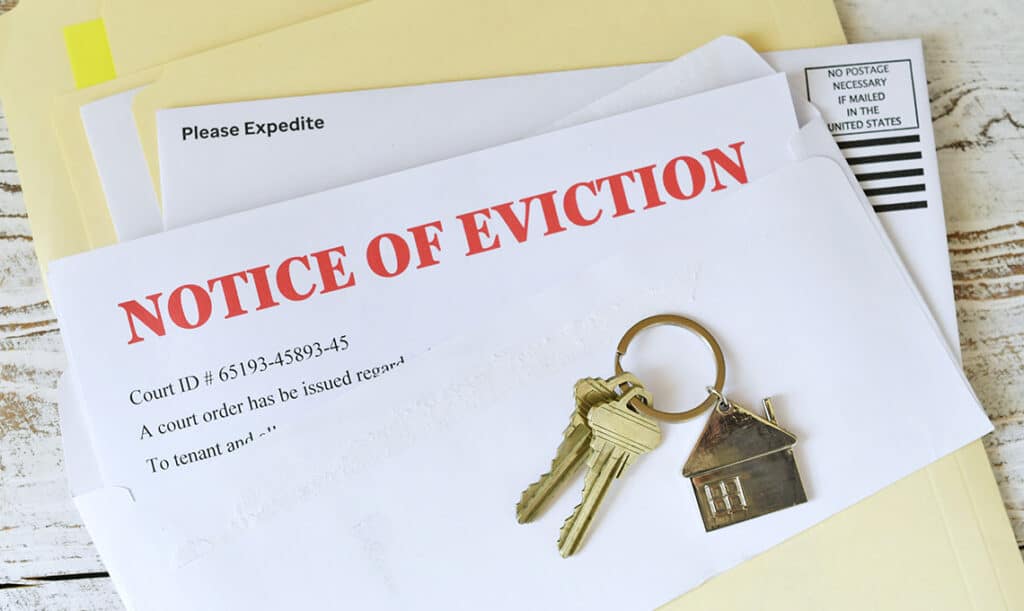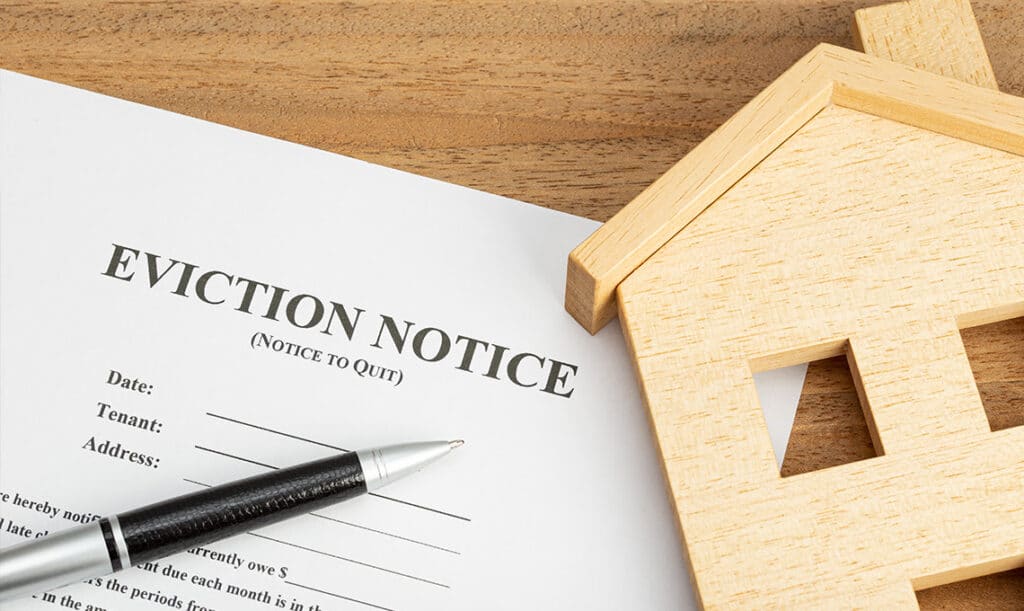
The San Diego eviction process has become much longer and harder to handle since AB 2347 took effect. What used to take around 30 days now takes 90 days or more, and every extra week means you’re losing rental income while your bills keep piling up. This timeline change can put a dent in your monthly budget.
The landlords who do well are the ones who learn to work with these new laws instead of trying to work around them. If you’re careful to keep perfect records from the very first day, you can save yourself weeks of delays down the road. Legal help tends to pay for itself once you think about how much money you’d lose from multiple months without any rent checks. When you actually sit down and do the math, you’ll usually see it makes sense to get help.
These longer timelines usually create cash flow problems that need completely different strategies than before. Your property just sits there empty while the legal process slowly works its way through. Every time there’s another delay, it just adds more financial pressure to your rental business.
Let me talk about making it through these longer timelines while you keep your investment safe and your cash flow steady.
What AB 2347 Means for You
AB 2347 changed the eviction process for San Diego landlords when it started on January 1, 2025. The biggest change is that tenants now have 10 court days to respond to eviction notices instead of just 5 days like before. This might not sound like much. But when you start counting the actual days on your calendar, you’ll see how much longer everything takes.
Here’s where it gets confusing. Those 10 court days don’t count weekends or holidays, so what seems like a week and a half can usually turn into two or three weeks of real time. If you have to serve papers through the mail, you need to add another 5 days on top of that. A nonpayment case that used to take about two weeks to get going now takes almost a month just to get through the first response stage.
These longer timelines hurt your cash flow more than you might expect. Every week that goes by without rental income makes the situation harder to manage, especially since you still have to pay your mortgage and keep up with maintenance costs. Property owners who don’t have a big financial cushion end up struggling when their vacancy costs pretty much double.

The law also gives tenants new ways to challenge evictions. They can now file motions to dispute specific parts of your eviction complaint instead of having to defend against everything all at once. When they file these motions, courts have to schedule hearings within 5 to 7 court days. This sounds pretty quick. But what it actually does is create another step in the process that you didn’t have to worry about before. Each motion pretty much turns your case into multiple smaller cases.
You’ll also need to be way more careful with your paperwork now. You have to include all your supporting documents when you first give them the paperwork, and tenants have to submit any written arguments by the court day before the hearings. The legislature passed these changes to help with California’s housing crisis. Every new protection creates another possible delay in your timeline.
With all these changes, you should make sure your documentation is perfect. If you’re missing forms or your notices aren’t filled out right, your case can fall apart before you even get to a hearing. Courts are now looking at every single detail more closely to make sure tenants’ rights are protected.
Keep Your Records Neat and Act Quickly
When you get your paperwork right the first time, it pretty much determines if you’ll have a quick eviction or need to start all over again. Even one small mistake on your 3-Day eviction form to Pay or Quit can reset your whole timeline. Maybe you calculated the rent wrong or didn’t serve the papers the right way. The fact is, the court doesn’t care that it was an honest mistake. Judges usually see these errors every single day.
Write down everything from day one. Take photos of any posted notices with timestamps. Keep copies of every text message and email you send to tenants. Write down the exact date and time when you give notices in person. Courts love it when landlords can prove what they’re saying.
You don’t want to wait to serve notices once a tenant breaks the lease. You might think you’re being nice and give them a verbal warning first. But you’re actually making the situation worse for yourself. Every day you wait is another day added to your timeline. You need to serve that eviction form as soon as rent is late or when you see a lease violation.
If you wait to act, it adds weeks to your court case. Your rental income stops coming in while you wait for the court to make a ruling. At the same time, your mortgage payments and property taxes keep coming, whether tenants pay or not.

The new laws say tenants now have 10 days instead of 5 to respond to eviction notices. So your paperwork needs to be even more precise since everything takes longer now. You can’t have a judge dismiss your case because you missed a step or filed the wrong paperwork. With these new laws, you need to pay attention to all the specifics.
Make a checklist for every eviction case you work on. Include rent calculations, the right ways to serve notices, and all the papers you need for court filings. When you keep strong records, they also help you if tenants try to say you harassed them later.
Having checklists stops you from making expensive mistakes that can hurt your case. If you’re missing paperwork, it means you have to start over with new notices and court filings. Your tenant gets extra months of free housing while you do all your paperwork over again.
Tenant Protection Laws
San Diego’s new tenant protection laws now let landlords get back their attorney fees and extra damages. So it’s worth it to hire a lawyer right from the beginning.
Experienced eviction attorneys know what tenants will try before they do it. They’ll file the right paperwork ahead of time to keep your case moving along. These attorneys also have relationships with the people who work at the courthouse and understand just how they want documents filled out. The court staff know these lawyers and trust their work.
When you look at how much money you’re losing in rent, hiring a lawyer usually makes sense. Yes, attorney fees can seem pretty expensive up front. But they’re actually not that much when you compare them to months of no rent coming in. If you make just one mistake with the paperwork, you could end up having to start the whole process over again.
The costs add up when you’re not collecting any rent. Every extra month you go without rent usually ends up being more than what you’d pay a lawyer. Your property isn’t bringing in any money. But you still have to pay for everything else. The financial pressure gets even harder when the case gets stuck because of paperwork problems.

Experienced lawyers can sometimes get you a faster court date if they know what they’re doing. They understand all the local court laws that people who represent themselves usually don’t know about. If tenants try to file something at the last minute, attorneys can respond right away, so your case doesn’t get delayed.
The new forms that AB 2347 requires have to be filled out just right and delivered properly. Attorneys are really skilled at preparing the Summons for Unlawful Detainer, Complaint, and Cover Sheets fast and correctly. Now that tenants have 10 days to respond instead of 5, it matters even more to file everything at the right time to keep the process moving. If you miss even one deadline, you could end up having to start all over.
What may look like it costs too much money upfront usually saves you money later on. When you have a lawyer take care of your case, you’re much less likely to make those mistakes that could ruin your whole eviction.
Options to Skip the Court Process
Sometimes the fastest way to get a tenant out isn’t through the courts at all. Cash-for-keys deals can work great when you do them right.
Court battles drain your energy and bank account while your property just sits there empty. Most landlords waste months fighting when they could settle everything in just a few weeks. Your rental income pretty much stops the second any conflict starts.
The basic idea is easy. You offer the tenant some money to leave on their own by a set date. In San Diego’s market, most landlords pay somewhere between $500 to $2,000 based on what’s going on. That range covers most situations you’ll run into. What matters is to bring it up early before lawyers get involved and everyone digs in their heels.

San Diego courts also have mediation programs that can help cut through all the usual drama. You can usually get these sessions for free through community organizations like NCRC. You sit down with a neutral mediator who helps both sides find some common ground. The whole process feels much less hostile than going to court. The success rates are actually really high, and you can wrap everything up in just a few weeks instead of months.
Here’s what most landlords miss, though. How you bring up this option matters more than the dollar amount. Nobody wants to feel cornered or disrespected. When you talk about it as something that helps both of you, rather than a threat, tenants are much more likely to work with you.
You can sweeten the deal beyond just the cash, too. You could throw in help with moving costs or give them a neutral rental reference for their next place. Sometimes that reference is worth more to them than extra money. Strong references open doors when rental markets get tight.
The timing matters most when you’re still talking to the tenant directly. Once attorneys get involved, everything gets more messy and expensive. Legal fees keep adding up while your property brings in zero income. Communication gets more formal and much slower. Sure – you’ll spend some money upfront. But when you compare that to months of lost rent and legal fees, it usually makes much more financial sense.
What Should You Expect with Your Eviction Timeline
When you look at how long evictions take in San Diego, the numbers might shock you. Most landlords think they’ll get quick results, but usually end up waiting 60-90 days from start to finish.
Some recent changes have made the whole process take even longer than before. AB 2347 doubled the time tenants have to respond from 5 to 10 court days back in January. Even in the best situations, you’re now looking at 30-45 days for cases where the tenant doesn’t fight back. The laws just keep giving tenants more protections, so landlords have to wait longer.
You’ll see delays show up in the same places over and over. Court backlogs can add a few weeks to when you get your hearing date. Sheriff departments set their own schedules for lockouts – nothing you can do about it. Tenants might file for bankruptcy or ask for extensions, and you can’t stop them. While all this happens, you’re not collecting any rental income but still paying your mortgage and keeping up with maintenance. If the property sits empty for too long, you could lose thousands of dollars from your reserves before you get the place back.

Where most landlords get frustrated is when they find out their expectations don’t match reality. You serve a warning, thinking everything will be wrapped up in a month. But then you run into contested hearings and appeals that can drag the whole process out for 3-6 months. All this stress can cloud your thinking and lead to expensive mistakes.
Once you understand how these timelines work, you can plan much better. You’ll be able to set aside money for those times when the property sits empty, and you won’t make rash decisions out of panic. Yes, the process takes longer than it used to. Set up your finances ahead of time, and you won’t feel the pinch as much when your cash flow gets disrupted during these long proceedings.
The decisions you make at each step will help determine if your case ends up on the shorter or longer side of these time ranges. Serve notices properly, and you can save yourself weeks. Fill out all your paperwork completely to avoid delays – court clerks will send back anything that’s not filled out right. When the court asks for something, respond fast to keep everything moving. Landlords who stay on top of everything can finish their evictions in about half the time it takes people who are always trying to catch up.
Even though the system has become slower, it still works. Your cases will move through the courts as long as you follow all the requirements and keep everything organized.
Adapt Your San Diego Rental Strategy
The situation in property management has changed quite a bit since AB 2347 came into effect. If you try to fight these changes, you’ll just waste time and energy. The numbers here are straightforward when you look at them. While it can be frustrating that tenants now have 10 court days to respond instead of just 5, landlords who focus on doing everything right instead of taking shortcuts are still able to stay in control of their properties.
Landlords who take the time to understand these laws and keep everything professional always get through the system faster than landlords who try to resist or ignore what’s changed. The key is that doing everything fast means doing it right the first time.

Your rental income depends on every choice you make about procedures. When properties sit empty for months because of paperwork mistakes, you lose thousands of dollars while you still have to make those mortgage payments. Each mistake tends to snowball into another problem, and before you know it, you’re in a financial mess that makes it hard to take care of your other properties.
If you’re looking to manage rental properties successfully in today’s market, you need to change how you do everything instead of trying to fight what’s new. Property owners who keep detailed records, act fast when problems come up, and think about other ways to solve problems are still able to keep strong control over their investments.
It gets much easier to deal with all these complicated laws when you have experienced people taking care of your properties. At Palm Tree Properties, we keep up with every single change in the laws so you don’t have to worry about whether you’re following the law or dealing with longer timelines. Because we stay on top of everything, we do all the paperwork right, we act fast when problems come up, and we know just how to work within today’s legal system to protect what you’ve invested. Professional property management can take away these problems while improving your income. Get your free rental property evaluation and find out how we can make your property management experience much easier.

